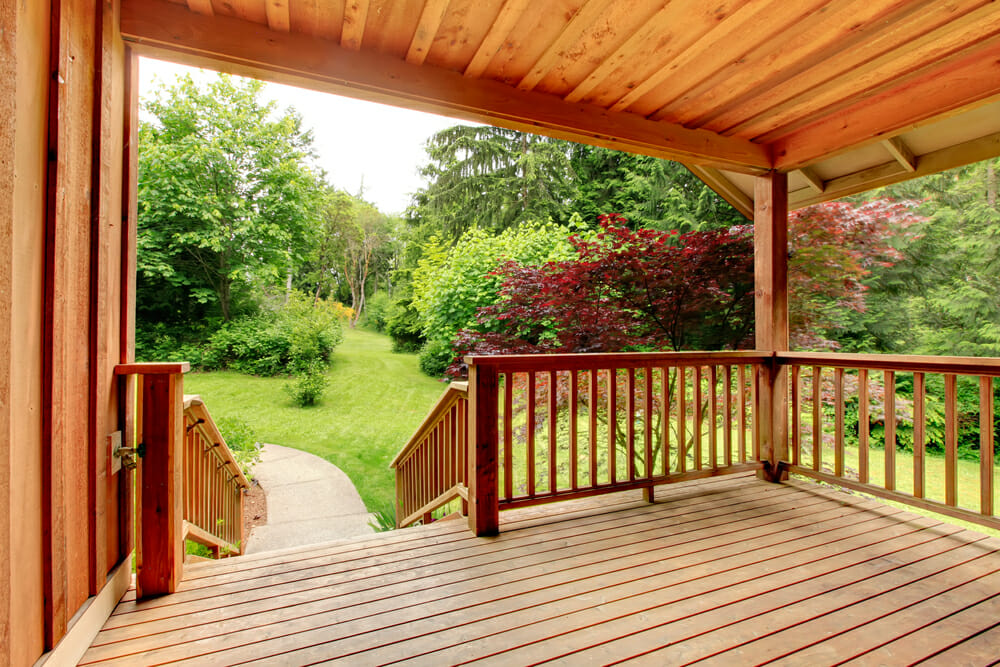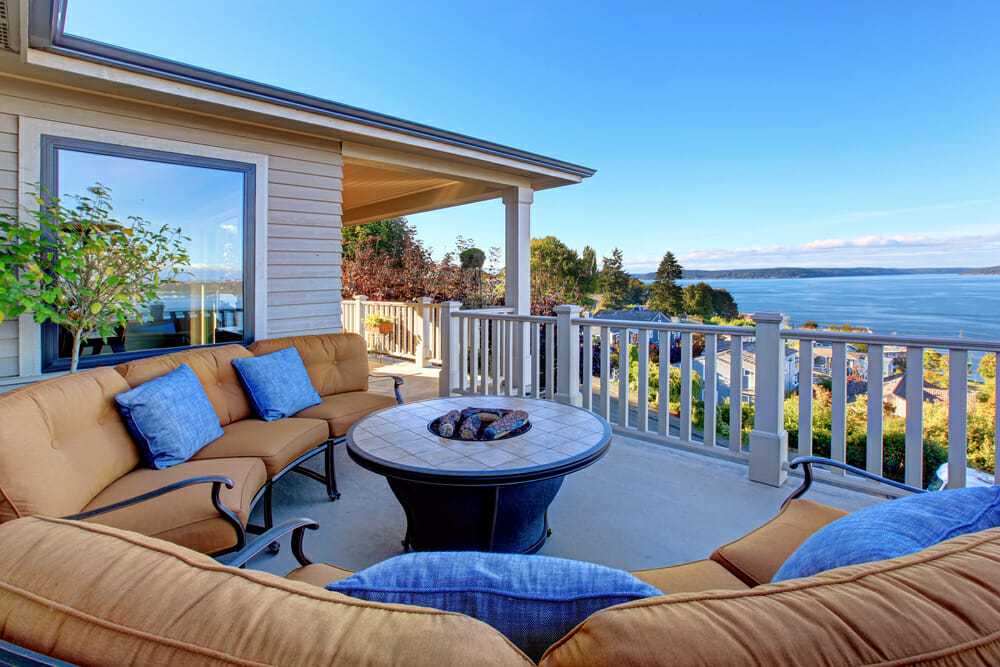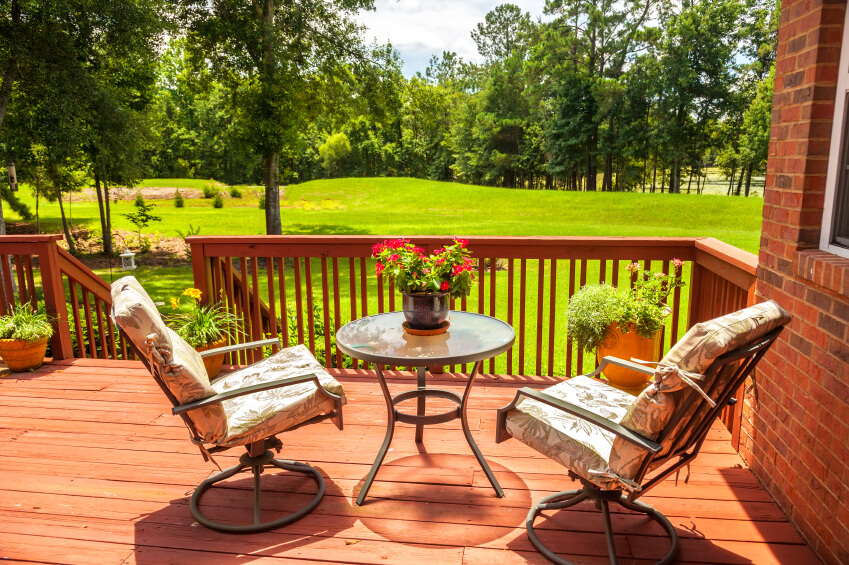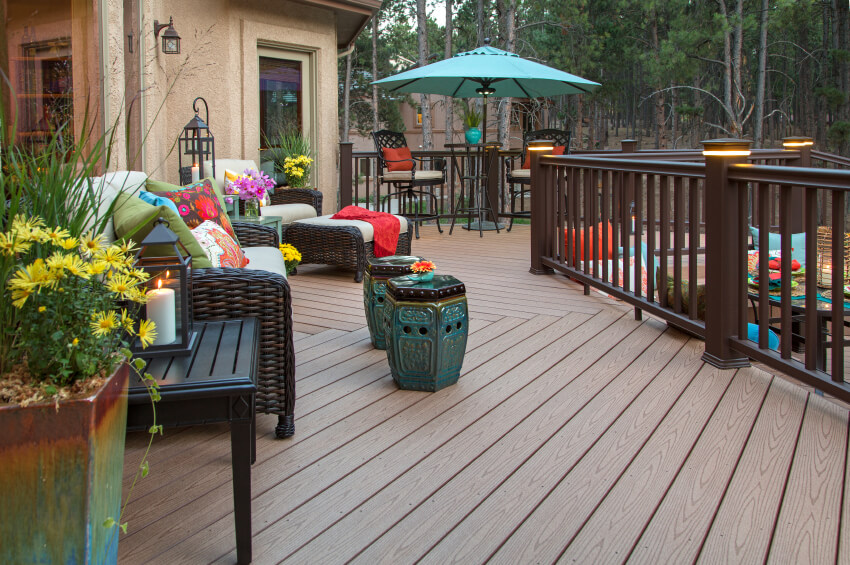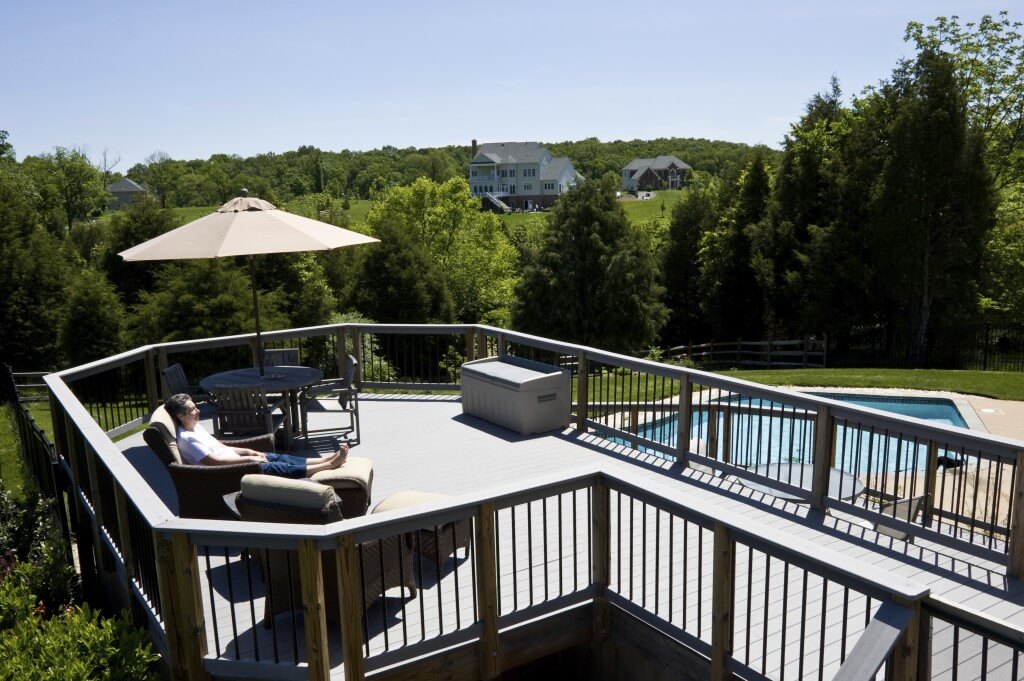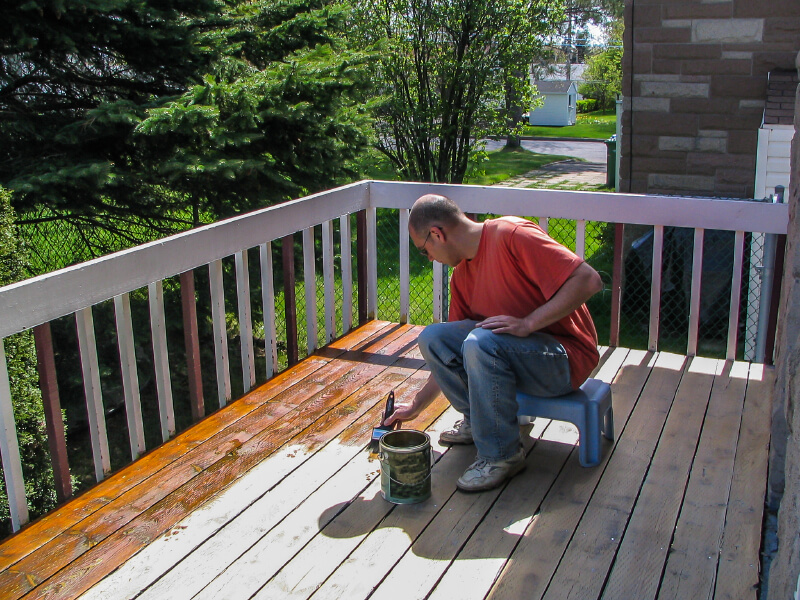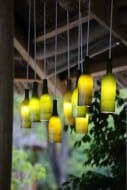Transform Your Outdoor Space With a New Deck
A well-designed deck is more than just an outdoor structure — it’s an extension of your home. It provides a versatile space for relaxation, social gatherings, and outdoor dining while increasing curb appeal and property value. Whether you’re looking for a simple platform deck or a luxurious multi-level design, choosing the right type, material, and installation method is key to long-term satisfaction.
Benefits of Adding a Deck
Building a deck offers multiple benefits, both aesthetic and practical. Not only does it serve as a visually appealing addition to your home, but it also provides a functional space for various activities. Whether you want to host summer barbecues, create a private retreat, or enhance your home’s resale value, a deck is a worthwhile investment. Here are some key benefits:
- Increased Home Value: A well-built deck can offer a high return on investment (ROI), often recovering up to 80% of its cost.
- Expanded Living Space: Enjoy an outdoor area perfect for relaxing, dining, or entertaining guests.
- Versatile Design Options: Choose from various materials, colors, and styles to complement your home’s architecture.
- Relatively Low Maintenance: Modern composite and PVC decking require minimal upkeep compared to traditional wood decks.
- Customization Possibilities: Add features like built-in seating, lighting, and pergolas for a personalized touch.
Types of Decks
Decks come in various styles to suit different home layouts, landscapes, and personal preferences. The right deck design should complement your home’s architecture and enhance usability. Here are some of the most popular types of decks and their unique advantages:
| Deck Type | Best For | Average Cost (per sq. ft.) | Maintenance Level |
|---|---|---|---|
| Attached Decks | Seamless home integration | $15 to $50 | Medium |
| Detached Decks | Flexible placement options | $20 to $45 | Low |
| Wraparound Decks | Expanding outdoor space | $30 to $60 | Medium |
| Multi-Level Decks | Large yards & slopes | $25 to $70 | Medium |
| Rooftop Decks | Urban homes with limited yard space | $30 to $90 | High |
| Pool Decks | Water-resistant outdoor spaces | $40 to $100 | High |
- Attached Decks: Connected directly to your home, attached decks function as an extension of indoor spaces, often accessible through sliding doors or patios.
- Detached Decks: Freestanding and versatile, detached decks can be placed anywhere in your yard, making them ideal for properties with uneven terrain.
- Wraparound Decks: These spacious decks surround part or all of the home, providing multiple access points and panoramic views.
- Multi-Level Decks: Designed for homes on slopes or large yards, multi-level decks create separate zones for dining, lounging, or cooking.
- Rooftop Decks: Ideal for urban settings, rooftop decks maximize outdoor living space in homes with limited yard area.
- Pool Decks: Constructed around pools, these decks offer slip-resistant materials and drainage systems to enhance safety.
Frequently Asked Questions
Deck Materials
Selecting the right decking material plays a crucial role in durability, maintenance, and overall aesthetics. Different materials offer varying levels of longevity, weather resistance, and upkeep requirements. Understanding your options will help you choose the best decking material for your home and lifestyle. Here are the top decking materials:
Wood Decking
Classic and affordable, wood decks provide a natural look but require regular sealing and staining to prevent weather damage.
Composite Decking
A blend of wood fibers and synthetic materials, composite decking resists rot, insects, and fading, making it a low-maintenance choice.
PVC Decking
Made entirely of plastic, PVC decking is waterproof and highly resistant to moisture, making it great for humid climates.
Aluminum Decking
Lightweight yet durable, aluminum decking is fire-resistant, corrosion-proof, and virtually maintenance-free.
Best Decking Materials for Different Climates
- Hot & Dry Climates
- Best: Composite, PVC, or aluminum (resist cracking and warping).
- Avoid: Unsealed wood, which can dry out and splinter.
- Humid & Rainy Climates
- Best: PVC or pressure-treated wood (moisture-resistant).
- Avoid: Softwoods like cedar, which are prone to mold.
- Cold & Snowy Climates
- Best: Composite decking (expands and contracts without cracking).
- Avoid: Aluminum, which can become extremely cold.
Eco-Friendly Decking Options
For homeowners looking for sustainable choices, here are eco-conscious decking materials:
- Recycled Composite Decking: Made from reclaimed wood and plastic.
- FSC-Certified Wood: Responsibly harvested lumber with environmental certifications.
- Bamboo Decking: A renewable alternative to traditional wood.
How Much Does It Cost to Build a Deck?
The cost of installing a deck depends on several factors, including size, material, labor costs, and additional features. Knowing these costs upfront can help you budget more effectively and make informed decisions about your deck project.
Deck Cost by Size
- 10’x10’ deck: $2,500 to $6,000
- 12’x16’ deck: $6,000 to $12,000
- 16’x20’ deck: $9,600 to $19,200
Decking Material Costs
- Wood Decking: $15 to $35 per square foot
- Composite Decking: $25 to $60 per square foot
- PVC Decking: $30 to $70 per square foot
- Aluminum Decking: $40 to $90 per square foot
| Deck Type | Material | Average Cost |
|---|---|---|
| 10’x10’ | Wood | $2,500 to $6,000 |
| 12’x16’ | Composite | $6,000 to $12,000 |
| 16’x20’ | PVC | $9,600 to $19,200 |
| Multi-Level | Wood | $20 to $40 per sq ft |
| Rooftop Deck | Composite | $30 to $70 per sq ft |
| Pool Deck | Aluminum | $40 to $90 per sq ft |
Labor Costs
Hiring a contractor typically costs $15 to $35 per square foot, depending on complexity, location, and required permits.
Frequently Asked Questions
Topics to Explore
Planning Your New Deck
Designing a deck involves careful consideration of size, layout, materials, and safety features to ensure it meets your needs and complements your home. Before construction begins, take the time to plan your deck’s functionality and aesthetics to avoid costly modifications later. Consider asking yourself these questions:
How Big Should I Make My Deck?
A deck should be large enough to accommodate your intended activities but not so big that it overwhelms your yard or remains unused. Consider how you plan to use the space — whether for dining, lounging, or entertaining. A general rule of thumb is that a deck should not exceed 20% of your home’s square footage unless your outdoor space is the primary living area.
How Will I Access the Deck?
Deck placement should align with existing doors or frequently used areas of your home. If possible, position the deck near your kitchen for convenient outdoor dining or close to a living area to create a seamless transition between indoors and outdoors. If the deck is elevated, consider adding stairs or ramps to enhance accessibility.
What Deck Material is Best for Me?
Your choice of decking material should balance aesthetics, maintenance, and longevity. Wood provides a classic, natural look but requires frequent upkeep. Composite and PVC decking are low-maintenance options that resist rot, moisture, and insects. Aluminum decking offers durability and fire resistance, making it ideal for hot or fire-prone climates.
What Safety Features Will I Need?
Safety should be a priority when planning your deck. Railings are essential for elevated decks, while slip-resistant materials help prevent accidents. If you have children or pets, gates or enclosed railing designs can add an extra layer of protection. Lighting along stairs and pathways improves visibility and enhances nighttime usability.
Deck Building Permits & Code Requirements
Before starting construction, check local building codes and zoning laws to ensure compliance.
Common Permit Requirements:
- Deck Height Regulations: Elevated decks often require additional safety features.
- Weight Load Restrictions: Permits ensure your deck can handle furniture, grills, and foot traffic.
- Property Line Setbacks: Some municipalities require a certain distance from fences or other structures.
Most professional contractors will obtain the necessary permits on your behalf. If building a DIY deck, you must apply for permits at your local zoning office.
Finding a Deck Contractor
Hiring the right contractor ensures your deck is built safely, efficiently, and in compliance with local building codes. A professional deck builder will provide expert craftsmanship, guidance on materials, and ensure all necessary permits are obtained. Additionally, working with a licensed contractor reduces the risks associated with DIY projects, including structural instability and potential safety hazards.
| Factor | DIY | Professional |
|---|---|---|
| Cost Savings | Yes (labor savings) | No (labor costs added) |
| Skill Level Needed | High (carpentry experience required) | Low (contractor handles) |
| Time Commitment | Long (weeks or months) | Shorter (1–3 weeks) |
| Warranty & Permits | No guarantee, DIY must obtain permits | Typically covered by contractor |
DIY vs. Professional Installation
- DIY: Suitable for experienced homeowners with carpentry skills, but time-consuming and may lack warranty coverage.
- Professional Installation: Ensures structural integrity, proper permitting, and adherence to building codes.
How to Hire a Contractor
- Research local contractors and check online reviews.
- Verify licensing, insurance, and references.
- Request multiple estimates and compare pricing.
- Ask about warranties and project timelines.
Contractor Red Flags to Watch For:
- Requests full payment upfront
- No written contract or warranty
- Vague estimates with no itemized costs
Frequently Asked Questions
Deck Maintenance and Care
Regular maintenance extends the life of your deck and preserves its appearance by preventing structural damage, minimizing wear and tear, and maintaining its aesthetic appeal. Consistent upkeep helps to protect your deck from harsh weather conditions, UV exposure, and moisture-related issues such as rot or mold growth. By establishing a routine maintenance schedule that includes cleaning, sealing, and inspecting for potential repairs, homeowners can ensure their deck remains a safe and inviting outdoor space for years to come.
Cleaning Your Deck
- Sweep regularly to remove debris.
- Wash with a mild soap solution or specialized deck cleaner.
- Use a power washer cautiously to avoid surface damage.
Sealing & Staining
- Apply sealant annually to prevent water damage (for wood decks).
- Stain wood decks every 2-3 years to maintain color and protection.
Repairing Common Issues
- Replace rotting or cracked boards.
- Secure loose fasteners and railings.
- Inspect for mold, mildew, or structural damage.
Frequently Asked Questions
Deck Add-Ons and Upgrades
Enhance your deck’s functionality and aesthetics with these additions to create a more comfortable, visually appealing, and practical outdoor space. Adding the right features can improve safety, increase usability, and enhance the overall enjoyment of your deck. Whether you want to create a shaded retreat, improve nighttime ambiance, or ensure year-round usability, the following deck upgrades can make your outdoor area even more inviting.
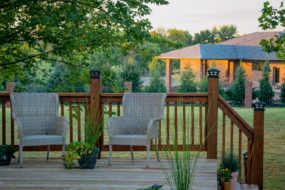
Pergolas: 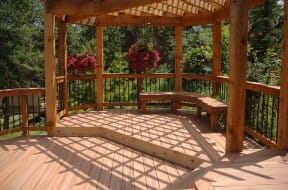
Lighting: Installing deck lighting enhances both ambiance and safety, making your outdoor space more functional after dark. Options include solar-powered lights, recessed stair lights, post cap lighting, and hardwired LED systems. Proper deck lighting reduces the risk of trips and falls while creating a warm and inviting evening setting.
Roof Extension: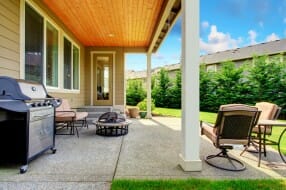
Ready to get your project started?
Let us find the best deck pros in your area, then easily request quotes, book a contractor, and get the job done. It's that easy.

Homeowner Resources
Here are the top articles that homeowners found useful when planning their deck project and navigating the contractor hiring process.

Real Stories, Real Success
See how our solutions empower homeowner projects and experiences.
